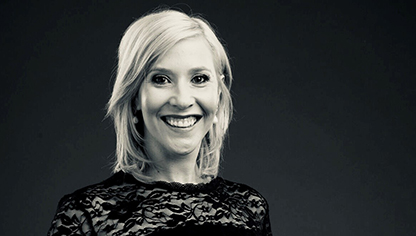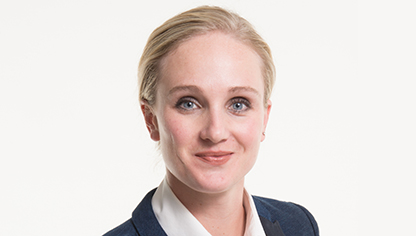Receive Focus insights straight to your inbox
Many South Africans are taking their money out of the country and investing their nest egg offshore. The benefits of investing abroad include investment diversification, global growth exposure, hedging against rand depreciation and the mitigation of SA's political and economic risks.
The question everyone is asking is: How do I get my mattress money abroad to invest offshore? A number of options are available.

Single discretionary allowance
Every South African has a single discretionary allowance (SDA) of up to R1m, which can be sent offshore, per calendar year (January to December). No tax clearance certificate is necessary when externalising funds via your SDA. It is as simple as instructing your bank to send the funds abroad. Once the funds have been sent abroad, they can be used for investment or travel purposes.
Many clients ask us whether their SDA must be used to pay for their children’s tuition/university fees. Tuition/university fees do not form part of your SDA. This is a separate application which would be brought in order for payment to be made.

Foreign investment allowance
In addition to this, each South African resident has an annual foreign investment allowance (FIA) of R10m, which can be sent offshore. A tax clearance certificate is needed in order to externalise funds via your FIA. This is a relatively simple online application that is done on your SA Revenue Service e-profile platform. Once your tax clearance certificate is issued, on presentation, your bank will remit the funds abroad.
Funds sent offshore via either your SDA or FIA may remain abroad and be invested freely. There is no requirement for them to be repatriated back to SA. However, they would be subject to the restriction that they may not be made available to any other South African resident.
Should you, for instance, wish to give them to another South African resident as a gift, you would need prior Reserve Bank consent or the funds would have to be repatriated back to SA.
Externalising more than R10m
Individuals wishing to externalise more than R10m, without having the requirement to bring back the funds on redemption, can do so. However, it is a more complicated application and you would need a special tax clearance, which could take up to a few months to be issued. In addition to this, there would be a number of restrictions on the funds, and annual reports would need to be compiled and submitted to the Reserve Bank.
Asset swap (investing in a rand-denominated offshore investment)
Another way to externalise funds would be by investing in a rand-denominated offshore investment or via asset swap. Your capital would be invested offshore, giving you the global diversification and foreign currency exposure you're after. However, because your money does not physically leave SA, when you redeem your investment, all the funds would have to come back to SA and be converted to rands. Your funds would be invested offshore but not fully externalised. No tax clearance is needed to place these investments and they are not subject to the size limits, as with the SDA and FIA.
Investing via Investec’s offshore asset swap platform allows you to invest in hard currency without having to wait for a tax clearance to be issued. Once the tax clearance is issued, Investec can do a back-to-back transaction, which allows the investor to fully externalise their assets without suffering market or currency risk. There would no longer be the requirement for the funds to be repatriated back to SA.
Do you have to pay tax on the funds you externalised?

"Nothing is certain but death and taxes."
– Benjamin Franklin
South Africans are taxed on their worldwide income. Therefore, all investment income and returns earned on the funds that you have externalised would be taxed at your marginal tax rate. However, the tax system does allow exemptions for certain types of income. There are also double taxation agreements in place with many countries, which provide credit for foreign taxes paid.
An estate duty of 20% is levied on South African residents’ worldwide assets on death. This would include any offshore assets. Some countries may levy estate duties on certain types of assets within their territories. Where double taxation agreements are in place, a tax credit for foreign estate duties paid will be provided. Note that in the February 2018 Budget, it was announced that an estate duty levy of 25% would be applied on the value of estates in excess of R30m.
No matter the reason for investing offshore, structuring your investment affairs is critical. Investing offshore is more complex than local investing, so it's vital that you consult with both your tax and investment adviser, to assist you in finding a plan that works for your circumstances.
About the authors

Rene van Zyl
Joint-head, Investec Tax & Fiduciary
Rene completed her law degree at the University of Stellenbosch and is an Admitted Attorney of the High Court of South Africa. After completing her articles in Cape Town, she joined a multinational offshore trust company, gaining extensive experience in global estate planning and structuring for high net worth individuals, while obtaining her H-dip Tax through Thomas Jefferson School of Law in San Diego, California. Rene was responsible for local and offshore products and solutions at FNB Fiduciary before joining Investec Wealth and Investment as a Tax & Fiduciary specialist in July 2017. Rene has been instrumental in building the Tax and Fiduciary offering for Investec during the last two years, and she was the first founding member of the team. She was also the representative for Digital Assets in South Africa for STEP. She was rated in the Chambers HNW 2019 for professional advisors. Every year they carry out thousands of in-depth interviews with clients in order to assess the reputations and expertise of business lawyers worldwide. The qualities they look for (and which determine rankings) include technical legal ability, professional conduct, client service, commercial awareness/astuteness, diligence, commitment, and other qualities most valued by the client.

Elizabeth Fick
Joint-head, Investec Tax & Fiduciary
Lizzie is an admitted attorney, currently busy with her Masters in Taxation. She specialises in tax and cross-border planning and structuring. Lizzie has vast experience in the drafting of local and offshore wills, estate and succession planning, trust and company law, local and offshore trust and company administration, exchange control regulations, tax law and opinions, as well as cross-border structuring and planning. Before joining Investec, Lizzie worked as an associate at a global law firm specialising in tax and cross-border planning, and as a Client Relationship Manager in trust and fiduciary services.




